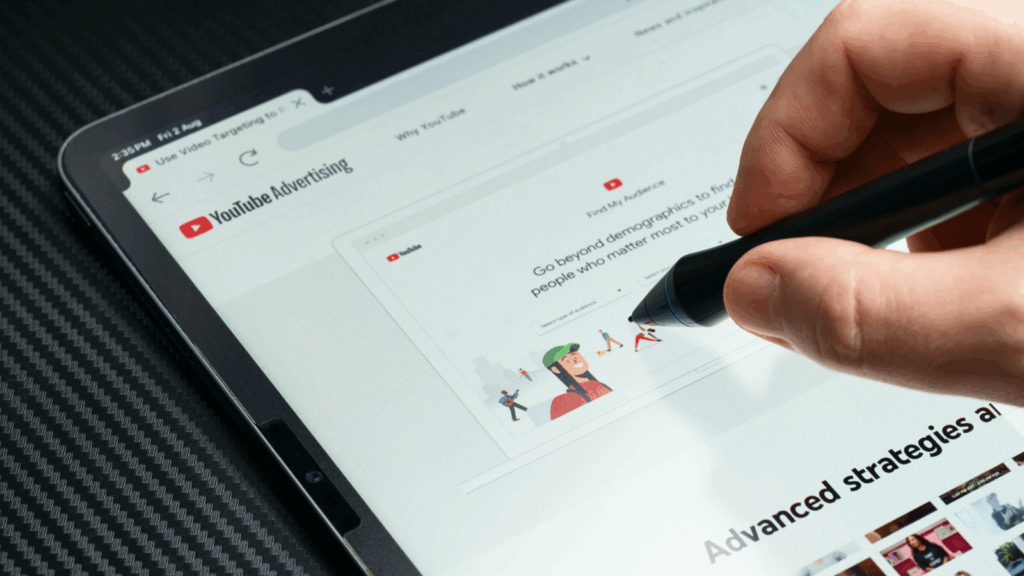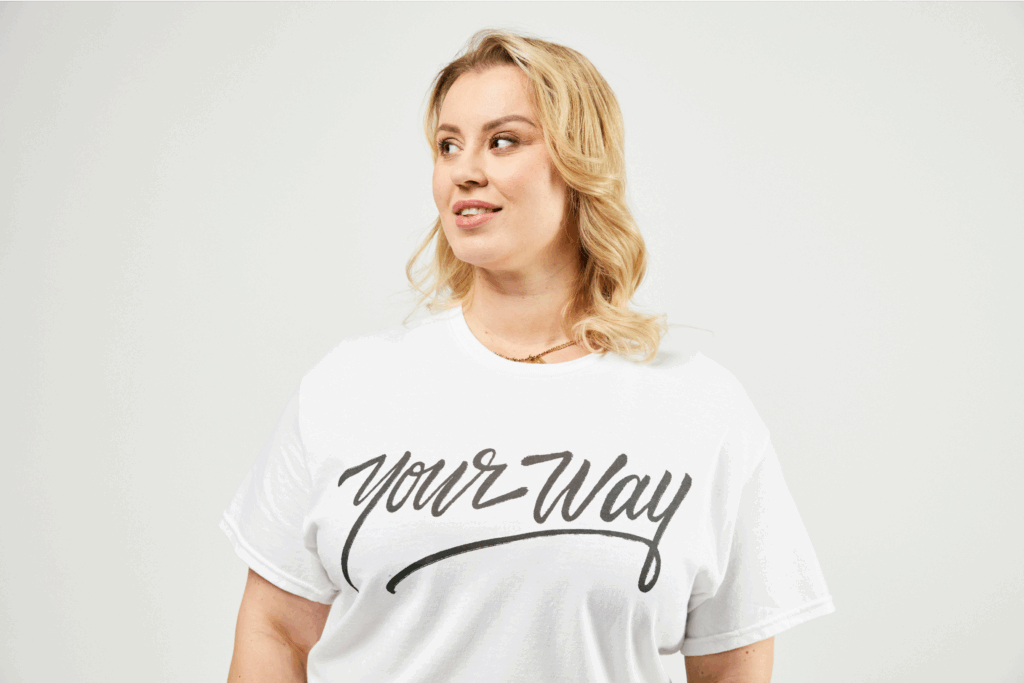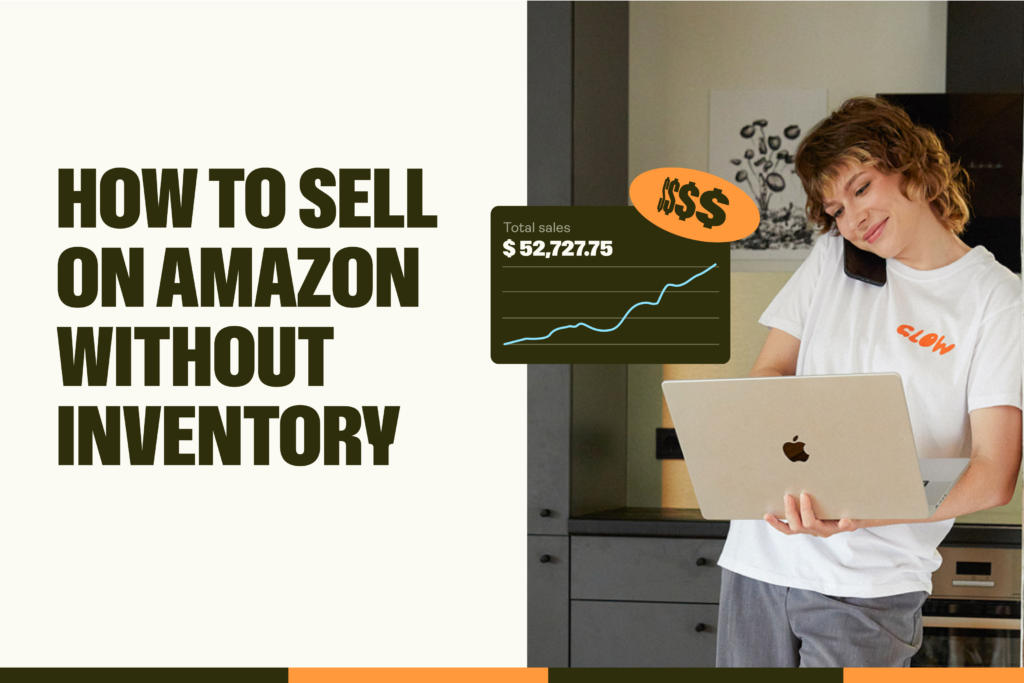Start a print-on-demand business today
Find yourself staring at the ceiling thinking, “I want to start a business, but have no ideas”? Don’t worry, you’re not alone. And there’s good news – business ideas are everywhere! You just need the right tools and mindset to uncover them.
In this article, we’ll show you how to turn that blank slate into a thriving company. Let’s get started!
This post may contain affiliate links, which means we may earn a commission if you make a purchase through those links. This comes at no additional cost to you.
You don’t need the perfect idea to start a business
Let’s bust a big myth: waiting for the perfect idea is a trap. Many successful businesses didn’t start with a million-dollar idea – they evolved, pivoted, and grew as the founders tested what worked.
Take Twitter. It began as a podcast platform. And Slack? It was born from a failed video game.
These examples prove that even if your business idea isn’t perfect at the start, it can still become a huge success.
The key is taking small actions – like testing a freelance service, exploring social media management, or creating a simple digital product.
So don’t overthink it – start small, learn fast, and watch your idea transform into a profitable business venture.
9 Practical ways to spark business ideas
Here are nine practical and proven steps you can take right now to find a fantastic business idea.
1. Outline your strengths and skills
Let’s get real – what are you actually good at? Start by listing your skills, hobbies, and the things people always compliment you on.
This is your personal skill stack – a sweet mix of talents and passions, like teaching and making videos as a hobby, or working as a graphic designer and being really into vintage cars.
When you map this out, you’re not just pulling random ideas out of thin air – you’re identifying real opportunities that align with who you are.
These natural alignments reduce burnout risk and set you up for a business idea that fits your life because you’re building on your existing strengths, not forcing something artificial.
2. Monetize your hobbies

Got a hobby that’s taken over your weekends? Let’s see if it can bankroll your future.
If you’re obsessed with baking, how about turning your passion into an eBook of unique cookie recipes? Or start a YouTube channel with tips and tricks for the perfect sourdough loaf.
And if you love caring for your cacti, design quirky cactus-themed merch like stickers or t-shirts to sell on Etsy.
The key is to ask: “Is my hobby marketable? Are others already paying for this?” Look for similar existing businesses, online courses, or popular influencers to see if there’s market demand.
Hobby-based businesses have staying power because they’re rooted in what you already love doing, making them more fun and sustainable in the long run.
3. Find solutions to your own problems
Ever had a daily annoyance that made you sigh, “Why hasn’t someone fixed this yet?” That’s your golden business idea waiting to be born!
Some starting points:
- Keep an “annoyance log” for two weeks. Note every time you hit a snag, like a messy kitchen drawer or a time-consuming task.
- Identify recurring problems that bug you (bonus points if you see other people complain about them too).
- Think: What would make this easier? Could you design a product or offer a service that solves it?
For example, if you constantly misplace your phone charger, create a cute, portable holder. If you hate juggling your schedule, design a planner tailored to your lifestyle.
Test with a simple prototype or share your idea in Facebook groups or Reddit threads to see if people are into it.
4. Observe market gaps and customer frustrations

You’d be surprised how many successful businesses started because someone said, “This product isn’t doing it for me. Let’s make it better!” That’s the magic of conducting market research and spotting gaps and customer frustrations.
Start by playing digital detective. Jump into Reddit threads, Quora questions, and Facebook groups where people vent about products or services that just don’t cut it. Even better, snoop around Amazon reviews (especially those three-star ones) to see what’s “okay but not great” about existing businesses.
Once you’ve gathered some real-world grumbles, create a simple Gap Analysis Table:
- Problem: What’s the exact frustration or gap?
- Current solution: What’s out there already?
- My improvement idea: How would you do it better?
For example, let’s say you’re passionate about sustainable living. You notice people on Reddit complaining that reusable grocery bags are too bulky, plain, and just meh. That’s your cue. Imagine sleek, light-weight custom tote bags that just scream “Let’s go shopping!” – practical, cute, and eco-friendly.
Filling a gap isn’t just about being first – it’s about listening to real pain points and crafting smarter solutions that people are willing to pay for.
5. Tap into emerging trends
Want to catch the next big wave? Tracking emerging trends is a shortcut to spotting fresh business opportunities before everyone else jumps on board. But how do you find what’s trending?
Here’s where to look:
- Google Trends: Instead of typing in a specific keyword, visit the Trending Now page. It’s like peeking into the world’s collective brain, showing the hottest daily searches.
- Pinterest Trends: Head to Pinterest Trends and scroll through the homepage for top categories like DIY, fashion, or decor. This helps you see what people are pinning and saving, giving you insight into what’s visually and practically popular.
- Exploding Topics: Use Exploding Topics to discover rapidly growing topics across different industries – ideal if you want to catch trends before they go mainstream.
Once you spot a trend, map it to your skills. For example:
- AI art generators? Create an online course or sell AI-generated prints.
- Sustainable living? Start an Etsy store with eco-friendly products and packaging.
- Bathroom decor? Launch a Shopify store selling custom-printed shower curtains.
By keeping a file of trends and matching them to your skills or hobbies, you’ll find business ideas that are not only fresh but also have real market demand.
6. Improve existing businesses (Not reinventing the wheel)
Let’s face it: sometimes the best way to start a business is to make something that already exists… but better. The world’s most successful entrepreneurs often spot what’s working and put their own spin on it.
Look at Canva – it didn’t create design software from scratch, it simplified more complex tools like Photoshop and made them accessible. Or how Uber took taxi services and made them fast and app-based.
Here’s how to do it:
- Find an existing solution that’s good, but not great.
- Identify gaps: What’s clunky? What’s missing?
- Add your unique spin – maybe better design, easier onboarding, or adjustments for a new target audience.
For example, if you notice local gyms are stuck in the Stone Age, could you create a fun, app-connected workout community?
Improving existing businesses means lower risk, since the demand is already proven – just add your sparkle to make it shine.
7. Ask your friends and strangers for input

Fresh eyes can uncover hidden gold. Start by posting your idea in LinkedIn groups, Discord communities, Reddit, or on X (formerly Twitter).
Ask questions like, “Would you pay for this?” or “What’s the biggest frustration in [your idea’s topic]?”
Run short surveys on Google Forms or Typeform – super easy and free!
Keep it simple:
- 5-7 questions max
- Use a catchy intro
- Incentivize responses (like a free coffee voucher)
Real feedback shapes ideas into actual business opportunities while saving you from costly mistakes.
8. Attend networking events

If you’re serious about starting a business, getting out there and connecting with other entrepreneurs is one of the most underrated ways to find your big idea. Networking events – virtual meetups, local coworking sessions, or industry-specific conferences – are idea playgrounds.
Check out platforms like Eventbrite, Meetup, LinkedIn Events, and even Facebook groups to find them. Many of these events are free or have low upfront costs – perfect for beginners.
When attending, bring your curiosity. Ask people about their business challenges, what solutions they’re hunting for, and what trends they’re excited about.
Jot down insights right after – these conversations often highlight gaps or opportunities you’d never have thought of alone.
Networking events turn into an ongoing source of market research and idea generation, helping you stay up to date no matter where you’re starting from.
9. Take action by testing potential business ideas
Ideas are just daydreams until you bring them to life. Don’t wait for perfection – test fast. Get scrappy and put your idea out there.
Use these platforms for testing:
- Fiverr and Upwork: Create a simple gig around your idea, such as “I’ll design you a one-page website in three days.”
- Etsy or eBay: List a basic version of your product, like one cool sticker instead of a full sticker pack, to see if you’re on the right track with your design.
- Social media platforms: Use Instagram or TikTok to share a sneak peek and gauge reactions.
Another fun way is to host a small beta launch for free or at a discount. For instance, if you’re a wellness coach, offer three free coaching sessions to early testers and get priceless feedback.
Why test? Because you’ll see if your idea truly solves a problem and if people are willing to pay for it. Testing also builds buzz and helps you refine your business goals for maximum impact.
Tools and resources to help you brainstorm

Using the right tools when starting a business can supercharge your journey. Here’s a deeper look at resources to help you find, refine, and validate your next big idea.
Business idea generators
These tools can spark fresh ideas when you’re feeling stuck:
- Shopify’s Business Name Generator: Enter a keyword and get a list of potential business ideas tailored to you.
- Oberlo Business Name Generator: Offers catchy names to help brand your new company.
- Namelix: Uses AI to generate short, memorable business names.
Market research tools
Use these platforms to get to know your market as thoroughly as possible:
- Google Trends: See what people are searching for in real-time and get ideas for product demand.
- Semrush: View keyword search volumes, competitor websites, and content gaps to target.
- AnswerThePublic: Type in a product or service and get a visual of the questions people are asking online so you can create content that appeals to them.
Community platforms
Find real conversations to spot pain points and target audience needs.
- Reddit: Subreddits like r/Entrepreneur and r/smallbusiness reveal challenges, insights, and tips.
- Indie Hackers: Entrepreneurs share how they built their businesses – super inspiring.
- Product Hunt: Discover new products and what’s trending.
AI tools
These platforms help you brainstorm and create faster.
- ChatGPT: Generate unique business ideas and get instant feedback.
- Midjourney: Turn your ideas into cool visual concepts to test in social media posts.
- Copy.ai: Generate ad copy, blog ideas, and taglines for your marketing plan.
Additional resources
- Typeform: Create interactive surveys to gather real customer feedback.
- Google Forms: A free, no-fuss tool to test demand or refine your idea.
- Pinterest Trends: See what’s hot in crafts, home, and more – great for an eCommerce business.
- LinkedIn events: Attend networking hubs to meet other entrepreneurs and gather insights.
Use these resources to discover unmet needs and validate your concept before investing too much.
How to test a business idea without huge investments

You don’t need a fancy business plan or lots of money to see if your business idea has legs.
Here are some fun ways to test it with minimal upfront costs and get insights before fully diving in.
- Start with a Minimum Viable Product (MVP). Create the simplest version of your product or service to see if people bite – no need for bells and whistles at this stage.
- Offer a beta test to friends or early adopters. Share your MVP with a small group of potential customers who can give honest reviews and help you refine your business idea.
- Use social media polls and feedback. Use polls, questions, or direct messages to ask your audience what they want and if they’d buy it.
- Create a simple website or sales page to gauge interest. Build a basic landing page with Wix, Shopify, or WordPress to see if visitors sign up or pre-order – no need for a full-fledged business launch yet.
- Freelance or offer a small service to test demand. See if there’s market demand by offering your idea as a freelance gig on Fiverr or Upwork. It’s a low-risk way to start a business.
- Sell on existing marketplaces (Etsy, Amazon, Upwork). Jump on platforms with built-in audiences to test if people are willing to pay for your product or service.
- Run a pop-up or temporary booth at local markets/events. Connect with potential customers in person and see how they connect with your products in the real world – plus, you’ll gather valuable insights.
- Launch a low-cost ad campaign to see if it gets clicks or sign-ups. Use paid advertising on platforms like Facebook or Google to test the waters. Track how many people click, sign up, or buy – it’s a quick way to measure interest.
- Offer a workshop, class, or webinar related to your idea. Host an online workshop or local class to share your expertise, build trust, and see if there’s demand for a bigger offering.
- Partner with someone to share resources and reduce costs. Find another entrepreneur to collaborate with and split startup costs – two heads (and wallets) are better than one.
- Create a demo video or sample content. Make a fun, engaging video showing your product or service in action. Post it on social media to gauge reactions.
- Use free or low-cost tools to create simple marketing materials. No need to hire a designer. Adobe and similar tools help you make pro-looking graphics and videos to test your idea’s appeal.
- Track and analyze feedback to adjust or pivot your idea. Listen to your potential customers and adjust as needed. Successful entrepreneurs evolve to meet market trends and real-world demand.
With these budget-friendly strategies, you’ll gather feedback, test your big idea, and build confidence to turn it into a profitable business.
Explore Print on Demand with Printify
Print on Demand (POD) is a low-upfront-cost model for creating and selling custom products without holding inventory. It’s perfect for those who want to test out product designs and start a business without a huge financial investment.
1. Sign up for Printify
Create a free Printify account and tap into detailed guides, step-by-step resources, and a helpful Support Team to get your business off the ground.
2. Choose products
Browse our Catalog of over 1,300 products, from home goods and clothing to pet accessories and gaming items, and pick the right ones for your store and customer base.
3. Add your designs
Use the beginner-friendly Product Creator to upload a file or craft designs with AI-generated art, patterns, text, or free graphics. Preview your creations on our high-resolution mockups and click Save.
4. Connect a store
Printify integrates seamlessly with major eCommerce platforms and marketplaces like Etsy, Shopify, Amazon, and Wix for streamlined listing and order management.
5. Start selling
When someone buys from your store, our Print Provider network handles the rest: production, packaging, and shipping to your customer. It’s that simple.
First steps to starting a business

Before diving headfirst, it’s smart to lay some solid groundwork. Here’s a breakdown of what to tackle first, so you’re ready to bring your business idea to life and wow those potential customers.
Create a business plan
Your business plan is your roadmap. It should include your mission, goals, market research, competitor analysis, marketing strategy, financials, and a clear value proposition.
Use free templates from platforms like BPlans or LivePlan to keep it simple.
A detailed business plan helps you stay focused and attract potential clients or investors. Remember, it’s not set in stone – adjust as you go.
Consider different business models and register your entity
Explore business models like Print on Demand, an eCommerce store, B2B, freelance services, retail, subscriptions, and more.
Each model has unique startup costs and marketing strategies, so take those into account when choosing the best one for your business idea.
Ready to go legit? In the EU, check resources like the EU Start-up Guide or your national business portal. In the US, visit SBA.gov or your state’s registration portal to register and start your business venture.
Maps out your sales process
A streamlined sales process is your secret weapon for converting leads into loyal customers.
- Start by setting competitive pricing. Research your competitors, calculate your costs (materials, labor, overhead), and ensure you have a healthy margin while staying appealing to your target market.
- Use tools like Shopify or WooCommerce to build an eCommerce store with clear navigation and secure checkout. For payments, integrate Stripe or PayPal to give potential customers convenient options.
- Offer excellent customer service. Respond promptly to inquiries, provide clear product descriptions and FAQs, and handle returns and refunds smoothly to build trust and confidence.
- Don’t forget to follow up politely with potential clients and gather feedback after each deal to improve.
This proactive, relationship-focused approach will help you increase conversion rates, build a loyal customer base, and turn a one-time transaction into a long-term, successful business.
Market your big idea
Marketing your big idea is all about putting it in front of the right people.
- Start by identifying your target audience’s pain points, interests, and where they spend time – social media platforms, niche forums, or specific online marketplaces.
- Build a social media presence on platforms like Instagram, Facebook, and TikTok to connect, share engaging content, and run targeted ads.
- Create valuable content – blogs, videos, or podcasts – to build authority and trust. Tools like Adobe make content creation easy, while Google’s Digital Garage or HubSpot Academy offer free training to sharpen your skills.
- Don’t forget to encourage word-of-mouth referrals and stay consistent with your messaging. Keep testing and refining to see what sticks.
Analyze, adjust, and grow
After launching your business, your job isn’t over – it’s just beginning.
Use tools like Google Analytics to monitor website traffic, social media insights to see which posts perform well, and customer surveys to gather honest feedback.
Look for patterns: Are certain marketing channels bringing better results? Is your product or service meeting your customers’ needs?
Use these insights to tweak your offers, refine your marketing strategy, and improve your customer experience. Don’t be afraid to experiment with new tactics or explore trends. By staying adaptable and continuously learning, you’ll keep evolving and unlock long-term growth for your business.
Frequently asked questions
The easiest business to start is often a service-based one that uses your existing skills. Think social media management, freelance writing, pet sitting, tutoring, or offering digital products like templates. Another great option is running an online store with Print on Demand. These businesses require minimal upfront investment and can be run from home.
Many small businesses fail because they don’t confirm there’s actually demand for what they’re offering before launching, don’t track cash flow, or neglect marketing. Even a big idea can flop without customer research, proper pricing, and adapting to market trends. Successful entrepreneurs focus on ongoing learning and building strong relationships with potential customers.
Successful small businesses often tap into existing demand. For example, eCommerce stores selling unique products, dropshipping, digital marketing agencies, online courses, and subscription boxes.
Many successful businesses also capitalize on seasonality, emerging trends, offering excellent customer service, and creative business models that meet evolving customer needs.
For beginners, start simple. Do pet sitting for locals, write articles for clients on Upwork, sell print-on-demand products, or offer digital services like graphic design or social media management. These business ideas are beginner-friendly, have low financial risk, and help you learn the ropes without big investments or complex logistics.
Start your entrepreneurial journey today
Starting a business doesn’t have to be overwhelming. Use valuable tools, ask questions, and minimize ongoing expenses with a solid management structure and creative content marketing. Want a simple, profitable business idea? Explore Print on Demand with Printify today!












